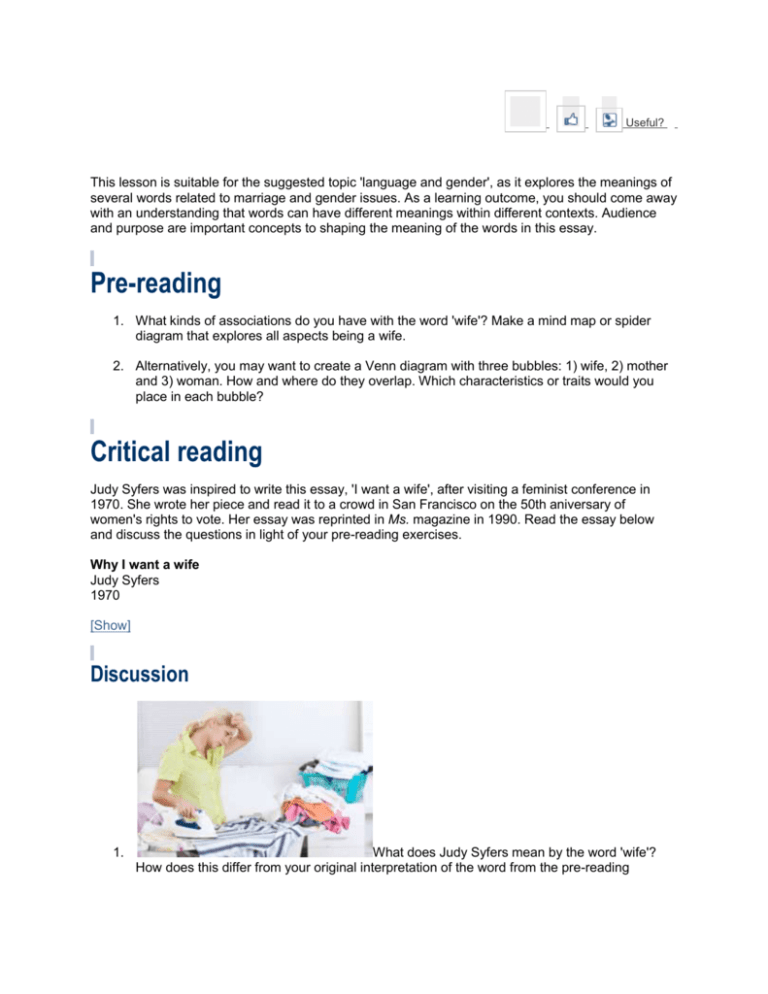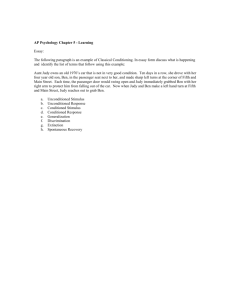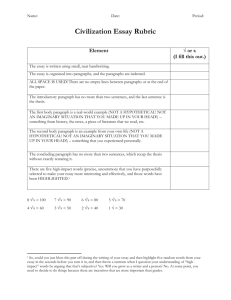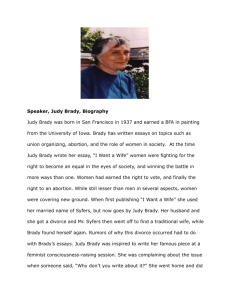Why I want a wife Judy Syfers 1970
advertisement

Useful? This lesson is suitable for the suggested topic 'language and gender', as it explores the meanings of several words related to marriage and gender issues. As a learning outcome, you should come away with an understanding that words can have different meanings within different contexts. Audience and purpose are important concepts to shaping the meaning of the words in this essay. Pre-reading 1. What kinds of associations do you have with the word 'wife'? Make a mind map or spider diagram that explores all aspects being a wife. 2. Alternatively, you may want to create a Venn diagram with three bubbles: 1) wife, 2) mother and 3) woman. How and where do they overlap. Which characteristics or traits would you place in each bubble? Critical reading Judy Syfers was inspired to write this essay, 'I want a wife', after visiting a feminist conference in 1970. She wrote her piece and read it to a crowd in San Francisco on the 50th aniversary of women's rights to vote. Her essay was reprinted in Ms. magazine in 1990. Read the essay below and discuss the questions in light of your pre-reading exercises. Why I want a wife Judy Syfers 1970 [Show] Discussion 1. What does Judy Syfers mean by the word 'wife'? How does this differ from your original interpretation of the word from the pre-reading exercise? Furthermore how does Judy Brady comment on other words that you explored in the pre-reading exercise, such as 'woman' or 'mother'? 2. How does Judy Syfers establish a narrative voice or sense of tone in this essay? What linguistic devices, such as point of view, are used to place the reader in a certain mood? 3. Go beyond dictionary definitions to explain Syfers' use of these words: 'proper,' 'pleasantly' (paragraph 4), 'bother', 'necessary' (paragraph 6), 'demand', 'clutter up' (paragraph 7), 'suitable', and 'free' (paragraph 8). 4. Discuss the use of pronouns in this essay. There seems to be an absence of 'he' or 'she' when referring this 'wife'. Instead many sentence make use of the word 'who'. Why is this? Who is 'I'? Towards assessment Written tasks - There are several creative tasks that you could write based on this essay. You may decide to write a letter to Judy Syfers in response to her essay, explaining how views on women have changed or remained the same since she wrote this essay in 1970. For the HL Written task 2, you will find the 'power and privilege' area of study very relevant to this text. The first question especially presents a lot of possibilities, 'How and why is a social group represented in a particular way?' Further oral activity - After exploring this text and several others from the 'language and gender' topic, you could conduct a small debate with a classmate on the statement: 'Women are portrayed more fairly today than 40 years ago.'










